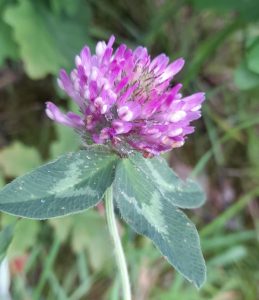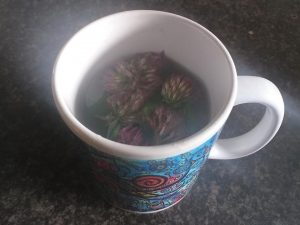Cerridwen’s Menopause Medicine Wheel – Swynwraig – Medicine Woman
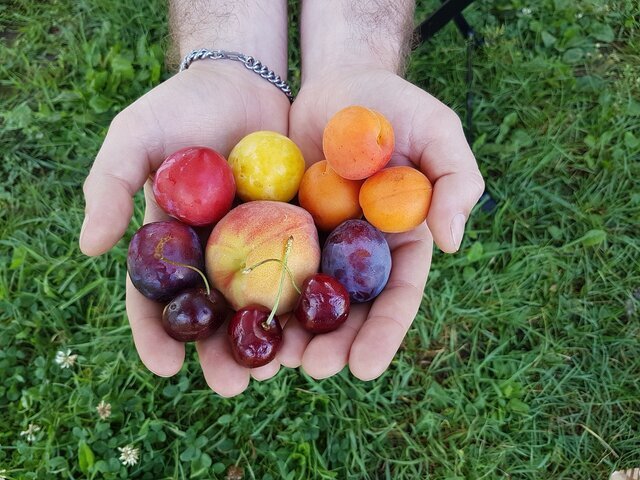
The midlife woman walks an ancient path that has been travelled by so many women before her. For thousands of years from the dawn of humanity, women who have survived to mid life have undertaken this powerful rite of passage that takes them from their fertile years into being a wise Woman Elder. This is not always easy and it’s challenging at times. The woman is struggling and the journey is becoming more difficult. The hot flushes are draining her and the night sweats and insomnia are making her tired. Her menstrual cycles have changed and the heavy bleeding has left her feeling depleted. She can feel how her body and emotions are changing and this often leaves her feeling confused and unsettled. She feels anxious, low in mood, angry and sometimes struggling with panic attacks. She is overwhelmed by how she feels as it is having a big impact on her life, her work and her relationships with others.
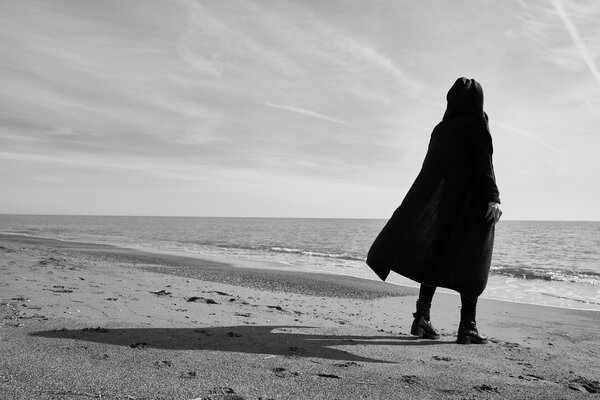
The Swynwraig
She calls out to Cerridwen for help. Cerridwen as Goddess of transformation and change, has many aspects and it is as Swynwraig that the midlife woman calls to Her. The Swynwraig is the medicine woman working with the plants, foods and wise woman magic. Cerridwen understands this wild and powerful transformation the woman is going through and is glad she can help to teach her the ways of the Swynwraig for self-healing and to support her sisters. The midlife woman has much to learn and knows that to support her changing body and moods she will need to change the things she does; to eat differently, to listen to her body more, nurture herself and learn the wisdom of the plant medicines. It will not be easy to make changes in her lifestyle but, as part of the wise woman transition, women have the opportunity to learn so much about their body and healing and are able to become a Swynwraig to others if they so choose.
My own perimenopausal experience
My own perimenopausal journey started with irregular periods and menstrual bleeding so heavy that I thought I was going to bleed to death. I didn’t, but it left me feeling debilitated, drained and severely anaemic. This was 14 years ago. I was, at the time, doing my final year of my degree in herbal medicine. My marriage had just broken up, I was stressed and the workload was immense. With the help of my clinic tutors I researched hormones, diet and herbs for the perimenopause. I started on a perimenopausal diet of being sugar free, with lots of phyto-oestrogens and foods to support my hormone balance. I also had calming herbs for my nervous system, to support my womb and to nourish my depleted adrenal glands. I also used supplements. It changed my life, hormone balance, my health and my attitude towards food. I did my dissertation on how stress affects hormone balance in perimenopause. A few years later when menstruation stopped forever and the hot flushes, mood changes and night burn-ups became intense, I revisited the diet and herbs and was able to put my body back in balance again.

Today as a practising Medical Herbalist I work predominantly with midlife women and hormones. I base my work on what I have learnt and practised as part of my personal journey and that helps massively with how I support other women. I understand how hard it is to make those changes as food and lifestyle are intertwined with our emotions, habits, lifestyle and culture.
Most midlife women find this transformational time very challenging and struggle as the effects of many years of stress, lifestyle, cultural habits, food and health impact on how we experience menopause. We are offered the opportunity to change what we eat and how we live as this can have a big impact on symptoms. Change is not easy but neither is menopause. Knowledge of what foods can help and what can make things feel worse can be life enhancing.
Whilst many women can reach out for support from orthodox medicine or from natural health practitioners, there is also a lot that can be done to enable the midlife woman to become her own medicine woman or Swynwraig and this knowledge can be shared with other women and passed on to our daughters.
Let’s talk about sugar
Many of us love sugar, it tastes good, it’s a major part of our lifestyle, food habits and is a culturally accepted, highly addictive drug. Well, let’s face it, it’s hard to avoid and is deeply entwined with our emotions, comfort and social activities. It’s difficult to give it up, we find excuses and when we do we crave it. Sugar can seriously affect our health especially as we get older, contributing to the risk of diabetes, heart disease, fungal infections and even cancers. It can also have a major impact on hormones, especially menopausal symptoms. Consuming it can often make us feel fatigued or depleted in energy as we crave it more to give us energy. Sugar can have an effect on gut health, fungal infections in our bodies such as thrush and lead to depleted levels of vital nutrients such as magnesium.
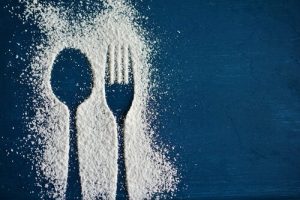
Sugar’s effect on menopause
Sugar can disrupt the production of insulin which is closely connected to all of the other hormones in our body, including oestrogen, progesterone and testosterone.
After a meal high in sugar, blood glucose levels can spike quite considerably leading to higher levels of insulin and this can lead to lower levels of an important protein known as sex hormone binding globulin (SHBG). SHBG binds excess oestrogen and testosterone in the blood, but when it’s low, these hormone levels increase, causing problems within the body. Oestrogen levels fluctuate a lot during the perimenopause and it’s these dramatic spikes and falls in oestrogen that can worsen symptoms
Studies have shown that women with diets high in sugar can experience worse menopausal symptoms than women with diets low in sugar. One study in particular followed 6,000 women for 9 years, and the results showed that women whose diets were high in sugar were 20% more likely to experience hot flushes and night sweats than their lower-sugar counterparts.
Healthy snacks
One way of cutting down on sugar is to substitute sugary foods for healthy low glycaemic snacks such as nuts and seeds, fruit, hummus, carrot sticks to help with the cravings, dried apricots, dried apples. I always recommend women make Wise Woman cake to eat instead of sugary snacks and it’s a great way to eat some healthy photo-oestrogenic foods that are full of vital Wise woman nutrients. One food I really like that’s quite moreish is to put pumpkin and sunflower seeds on a baking tray, cover in naturally fermented soya sauce and roast. This is full of magnesium, phyto-oestrogens and tryptophan, which is a precursor to the feel good chemical serotonin often depleted during menopause.
What are Phyto-oestrogens?
The word phyto-oestrogens comes from the Greek word “phyto,” or plant, and “oestrogen”. In their natural state they are found in plants, and are not made by the body. Phyto-oestrogen foods are essential to maintain hormone balance during the menopausal transition and beyond and in fact they can be quite common foods that are full of many other vital nutrients.
Phyto-oestrogens affect the body by attaching to oestrogen receptors. They can reduce high levels of oestrogen and raise lower levels of oestrogen, thus maintaining oestrogen balance for what the body needs.
Phyto-oestrogenic foods include:
Apples, apricots, figs, peaches, cherries, plums, watercress, fennel, parsley, alfalfa, garlic, potatoes, yams, pumpkin, sesame seeds, corn, broccoli, seaweed, carrots, olives, oats, brown rice, wheat, tempeh, naturally fermented soy sauce, peas, sprouts, beans, soy products, chickpeas, lentils, barley, pomegranates, nuts and seeds (including linseed).
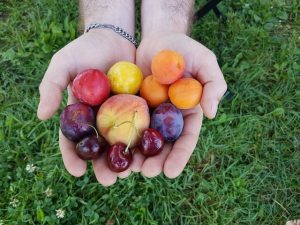
We need Magnesium too
Magnesium is a mineral and is the fourth most abundant mineral in our body. It is important for its involvement in many vital body functions including maintaining energy, healthy bones and muscles, mood and healthy sleep patterns.
Magnesium is needed for balancing hormones and during menopause lack of magnesium can sometimes actually be mistaken for hormonal problems. Studies show an improvement in menopausal symptoms with magnesium supplementation when levels are low. Many women are low in magnesium due to lack of it in diets. Magnesium levels are also lowered due to sugar consumption, alcohol, coffee, stress and certain drugs.
Magnesium-rich foods are:
Brown rice, buckwheat, sweetcorn, dandelion greens, dark green vegetables, legumes such as bean, peas, chickpeas, nuts (almonds, cashew, Brazil), rye, seeds (sunflower, sesame, pumpkin, chia), wheat germ/bran, soy products such as tofu, whole grains, millet, wholemeal spaghetti, fruits or vegetables (such as bananas, dried apricots, and avocados), very dark chocolate (over 70-75%) cacao powder.
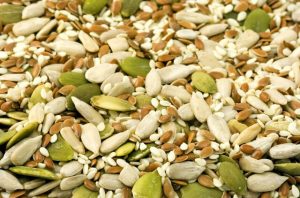
Red clover Trifolium pratense
Red clover is a great herbal ally to get to know during menopause. It is a common native perennial plant that grows in abundance in meadows, lawns and in parks. The flower heads and upper leaves are collected in mid-summer and it can be used in teas and tinctures.
It’s traditionally used to help the body get rid of toxins as well as being a gentle herb for soothing coughs. Many herbalists use it to help clear skin conditions such as eczema, acne and psoriasis
Red clover contains phyto-oestrogens, called isoflavones, which weakly attach to oestrogen receptors in the body’s tissues. They mimic the effects of oestrogen as well as blocking oestrogen receptors and reducing oestrogen if levels are too high.
Red clover is great for supporting the menopause on many levels, which include cooling hot flushes and night sweats, preventing bone loss, reducing the risk of breast cancer and reducing vaginal atrophy and dryness. Research shows it’s very effective in reducing menopausal symptoms and can be a safe and natural alternative way to balance hormones.
WISE WOMAN CAKE (‘HRT’ CAKE)
This is a wheat-free, dairy-free, soya-free & sugar-free adaption of the standard recipe for HRT cake. Wise woman cake is nutritious and delicious and is easy to make, ensuring a high intake of plant oestrogens (to balance oestrogen) and omega oils essential to hormonal health. I recommend a slice of this daily.
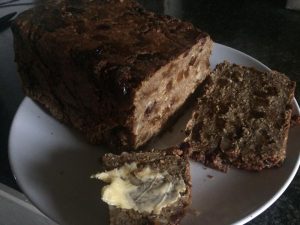
INGREDIENTS
- 100g Buckwheat flour
- 300g porridge oats
- 250g dried apricots
- A handful of dried cranberries (I sometimes substitute with other dried sultanas)
- 50g pumpkin seeds
- 50g sunflower seeds
- 100g golden linseeds (flaxseed) – can be ground
- 50g Brazil nuts chopped (I use a food processor)
- 50g walnuts chopped
- 500ml oat/almond/coconut milk
- 2 teaspoons of cinnamon (helps stabilise blood sugar)
- 2 teaspoons mixed spice (for taste)
- 1 teas of ground ginger
- 1 tablespoon fresh grated ginger (good for digestion)
- A few fennel seeds
- Approx 1 small glass of organic apple juice (enough to give moist consistency)
- 1 teaspoon of malt
PREPARATION
- Mix all dry ingredients together
- Add dried fruit, apple juice and oat milk
- Leave to soak for at least 1/2 an hour (I leave for a few hours)
- Preheat oven to 190 C (Gas Mark 5)
- Line a loaf tin with baking paper & spoon in mix
- Cook in preheated oven for approx 1 & 1/4 hours
- Slice and store in the freezer (well stored, the cake will last for up to a week)
TIPS
*Soak the dried fruits in the apple juice at least 1 hour beforehand, to release the flavour and nutritional properties and add moistness to texture.
Edwina Hodkinson BSc(Hons) MNIMH
Medical Herbalist
Member of the National Institute of Medical Herbalists
Bury, Lancashire, UK
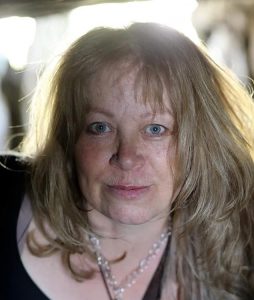
Edwina Hodkinson. BSc (Hons) MNIMH – Medical Herbalist and second spiral Priestess of Cerridwen
I have been a medical herbalist for 12 years, having graduated with a first-class degree in Herbal Medicine at Central Lancashire University. I work as a consulting medical herbalist in private practice in Bolton or via zoom, specialising in women’s health as well as working with community groups to help reconnect them to nature and the medicines growing around us. I also facilitate Wise Woman Rising workshops which help women to reconnect to the wise knowledge of menopause. I have a love for our native wild medicines and like to work with them as much as possible, which includes teaching local people about local herbs in a way that helps them reconnect to the world around them in a deeper way.
I have a background in nursing as well as having been a complementary therapist for over 25 years specialising in cancer care and working with the very sick. I am a forager, Clinical Reflexologist for 26 years, aromatherapist, Shamanic practitioner and Breath work coach.
websites: edwinahodkinsonherbalist.co.uk and weedsandwildmedicine.co.uk
Images by Edwina, unless otherwise credited
Medical Disclaimer
The Herbal Allies are shown here as part of a larger pharmacopoeia of herbs typically used by herbalists to support women during the menopausal transition and beyond and will be explored more in further articles. They are not prescriptive in any way, nor is it suggested you use them for particular issues and menopausal symptoms. Before using any herbs it’s best to consult with a Medical Herbalist or suitably qualified practitioner as not all herbs are suitable for all women and may interact with medications.
